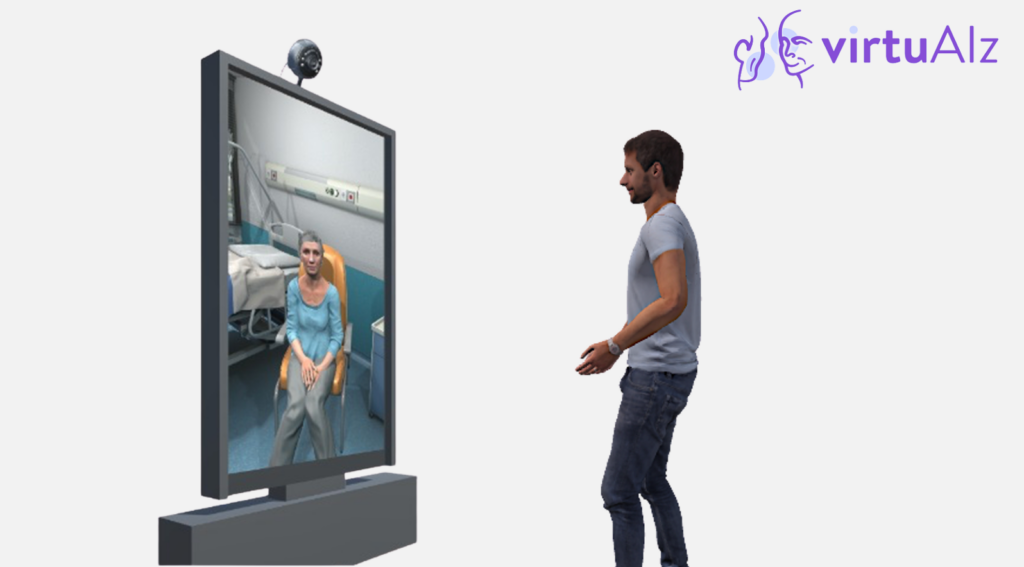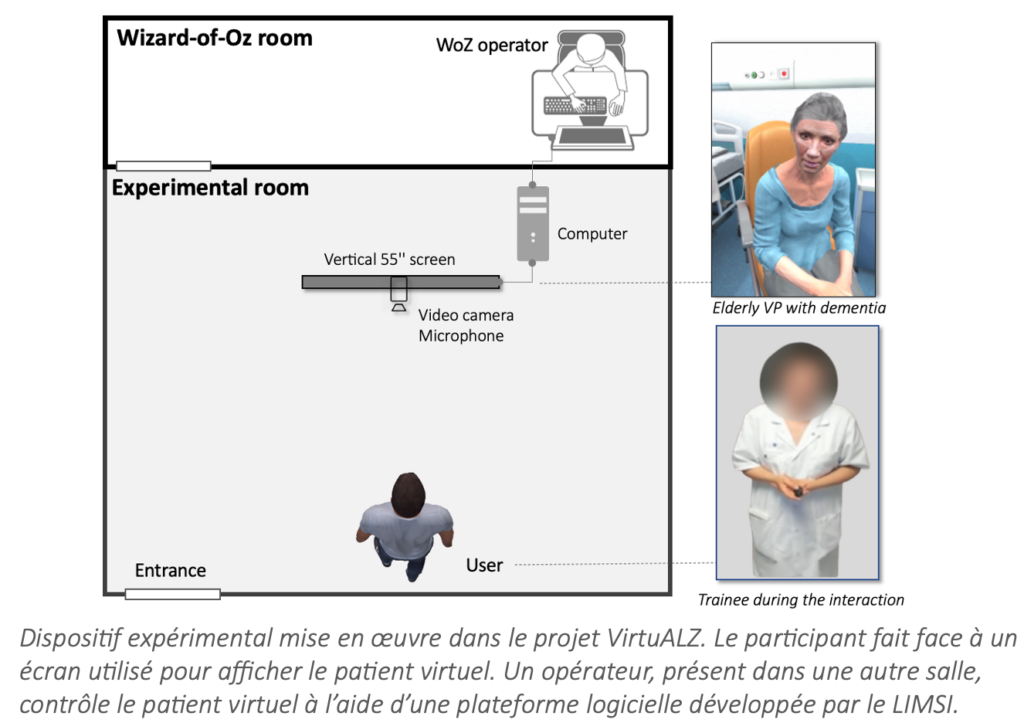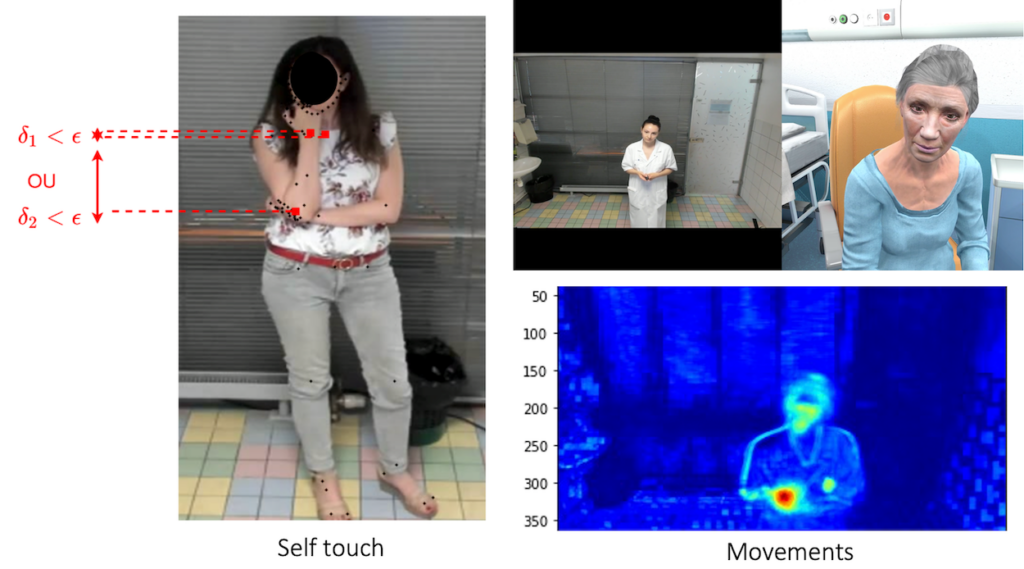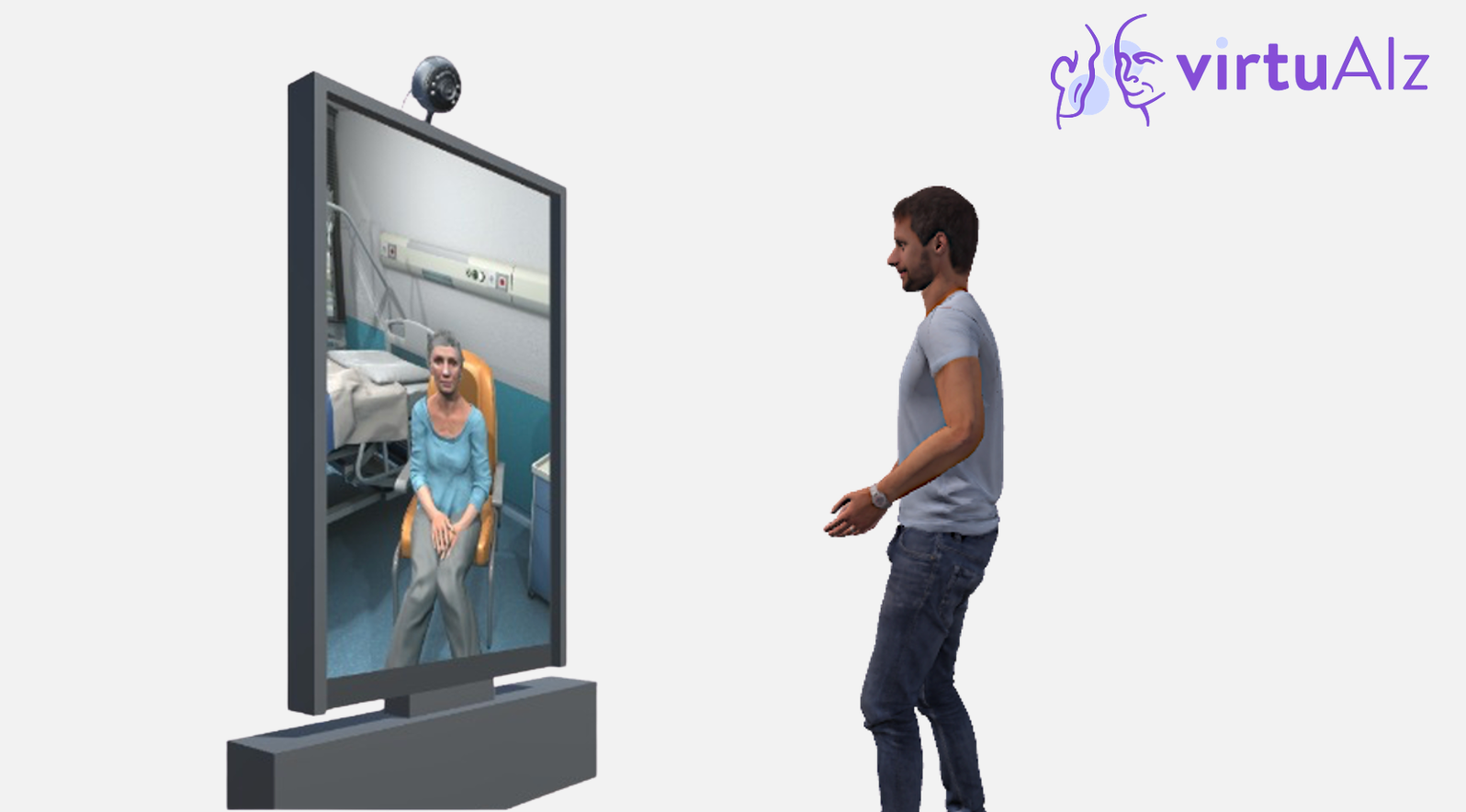VirtuAlz project – Virtual Patient” simulation training tool
VirtuAlz is a “Virtual Patient” simulation training tool for professionals in the health and medico-social sectors working with people suffering from Alzheimer’s disease or related disorders.
How can caregivers, especially nurses and care assistants, overcome the difficulties of interacting with Alzheimer’s patients on a daily basis? How can they be trained in the right gestures and appropriate communication at each stage of the disease? How can professional practice be improved through simulation? The VirtuAlz project was born in response to this training need expressed by health professionals.
The VirtuAlz serious game is designed to provide geriatric professionals with a training module in clinical reasoning and non-verbal communication skills by proposing various scenarios of frequently encountered critical situations and delicate management (e.g. refusal to take medication, wandering), in a secure setting.

The context
The communication skills of people with Alzheimer’s disease or a related disorder (ADRD) deteriorate over time, as memory loss and/or impairment of certain cognitive functions worsen. These disorders impair the quality of their relationships with their carers and caregivers, and this dimension is apparently not taken into account in the initial and ongoing training of healthcare professionals.
Insufficient preparation, particularly in non-verbal communication to which these patients are very sensitive, is the cause of many difficulties encountered by carers today. Training for health professionals in contact with and in charge of people with cognitive disorders should include not only theoretical but also practical knowledge to communicate effectively with these patients and to manage complex situations while respecting their safety and dignity.
These skills, which are essential for health professionals and staff in charge of people with Alzheimer’s disease, are currently insufficiently mastered and rarely taught, either in initial or in-service training.
The objectives
The objective of the VirtuAlz project was to design, develop and evaluate a virtual patient (VP) that could simulate Alzheimer’s disease symptoms, both verbally and non-verbally (facial expression, posture, movements). The project was based on the analysis of activity in work situations for training, the scripting of relational digital simulation with a virtual patient and the automated, real-time interpretation of the learner’s behaviour based on social signals (movements, gestures, facial expressions, interpersonal distance).
The results
In the pre-tests, we evaluated the ergonomic qualities of the device and the proposed scenarios using interviews and questionnaires with health professionals. This stage allowed us to make the necessary technical modifications to the device.
Then, we conducted two waves of experiments, including two scenarios (“taking medication” and “walking around”) with healthcare professionals and showed that the Virtualz device allowed to interact with a usable and acceptable virtual patient with a good level of realism according to these professionals.

We were able to develop the generation of virtual patient behaviours such as verbal (synthesised voice) and non-verbal (body and head movements, gaze direction, facial expressions) mimicking an elderly patient with signs of Alzheimer’s disease (apathy, memory loss, agitation, aggression or refusal of care). The trainee could interact in natural language with the virtual patient through a Wizard of Oz simulation. The platform developed analyses the video stream and transmits in real time a sequence of symbols describing the non-verbal behaviour of the health professional to the other computer modules of the VirtuALZ project.

A key aspect of the Virtualz serious game was the automatic evaluation of non-verbal behaviours (facial expressions, proxemia, facial touch, movements, postures) of learners captured during interaction with the virtual patient.

Finally, we examined the conditions for implementing the device in the training of professionals. The virtual patient device created lays the foundations for a base of varied training modules in all types of context.
Partnerships and collaborations
Supported by the French National Research Agency (ANR) as part of the Life, health and wellbeing Challenge, the Virtualz project involved the Assistance Publique-Hôpitaux de Paris (APHP, coordinator), the Institute of Intelligent Systems and Robotics (ISIR), the Computer Science for Mechanics and Engineering Sciences laboratory (LIMSI), the Lille Interuniversity Education Research Centre (CIREL), and the company SimForHealth (Interaction Healthcare). It lasted 48 months (May 2018 to May 2022).





